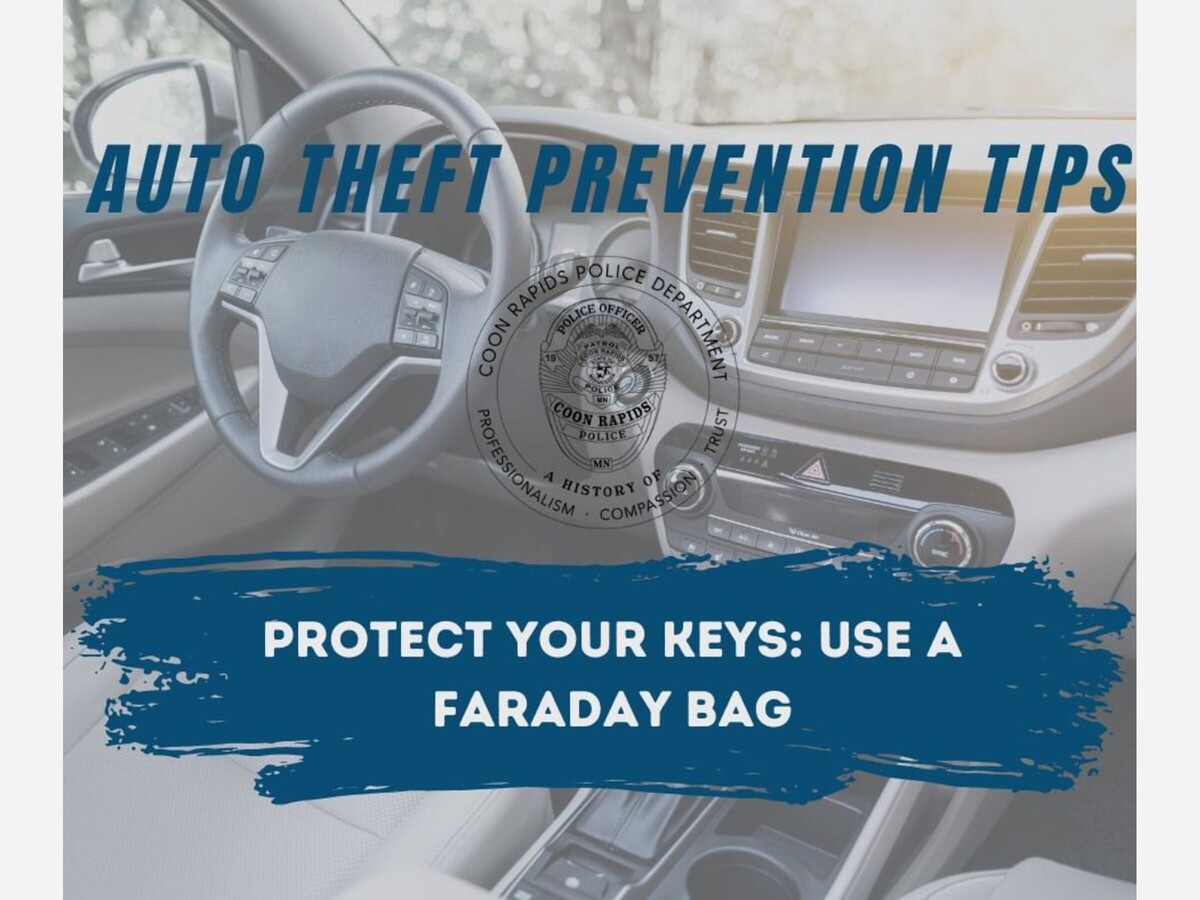Image


As keyless entry and push-button start systems become standard in modern vehicles, law enforcement agencies and security experts are warning that the convenience comes with a hidden risk: sophisticated thieves can exploit these systems to steal cars in seconds.
The Coon Rapids Police Department is urging residents to adopt a simple, low-tech defense: store key fobs in a signal-blocking pouch or container, often called a “Faraday bag” or “Faraday box.”
Cars with passive keyless-entry systems continuously detect a faint radio-frequency (RF) signal from the key fob. Normally, this allows drivers to unlock and start their vehicle without ever removing the key from a pocket or purse. But criminals have developed a technique called a “relay attack” to intercept and amplify these signals.
In a typical relay attack, two accomplices work together: one positions a signal-capturing device outside a victim’s home — often near the front door or a window — while the other stands near the car with a signal amplifier. The system is tricked into believing the key is present, granting access and enabling ignition. The entire process can take less than a minute and often leaves no sign of forced entry.
Research underscores the vulnerability. In tests by Germany’s ADAC (the General Automobile Club), 230 out of 237 keyless vehicles were successfully compromised using relay equipment. Insurance and law enforcement reports also indicate a rise in thefts targeting keyless models, particularly by organized criminal groups.

The most effective countermeasure is surprisingly analog. Named after 19th-century scientist Michael Faraday, Faraday bags or boxes block electromagnetic fields, preventing the key fob’s signal from being intercepted or amplified.
High-quality Faraday containers are widely available and often cost less than $20. Experts recommend storing both primary and spare key fobs in these pouches immediately upon returning home, especially if keys are typically kept near doors or windows.
While Faraday bags are highly effective, experts caution that no single solution is foolproof. Substandard or counterfeit pouches may fail to block signals, and human error — such as forgetting to seal the bag — can leave vehicles vulnerable.
Police and security professionals recommend a multi-layered approach:
Despite advances in automotive security, many keyless systems remain susceptible to relay attacks. Researchers are exploring adaptive communication protocols to make interception more difficult, but widespread implementation is still forthcoming.
Until then, vehicle owners must take proactive measures. For residents of Coon Rapids and elsewhere, a simple step — keeping key fobs in a Faraday bag — can significantly reduce the risk of theft. As local authorities emphasize, protecting your car may be as simple as storing your keys correctly.